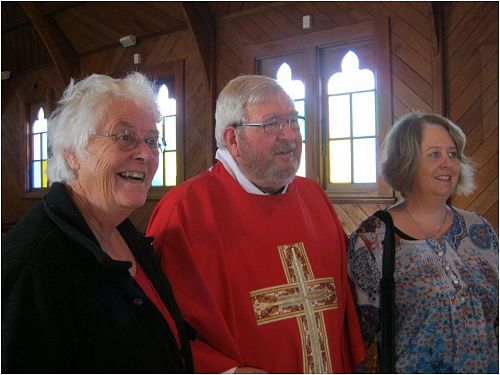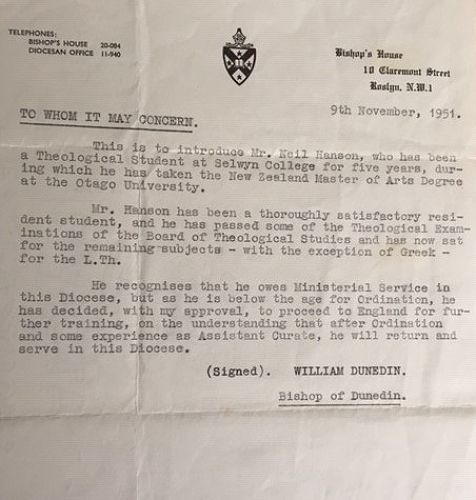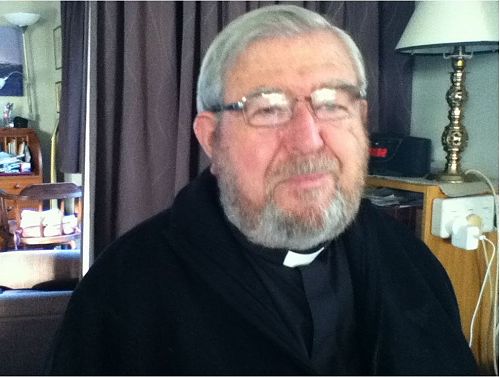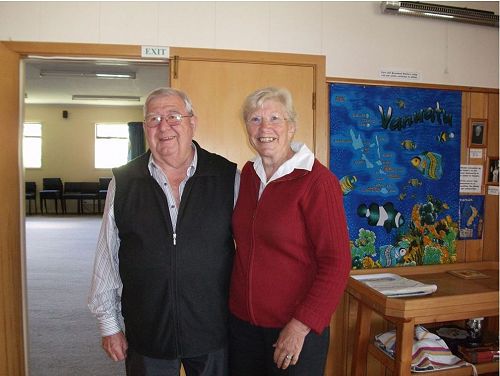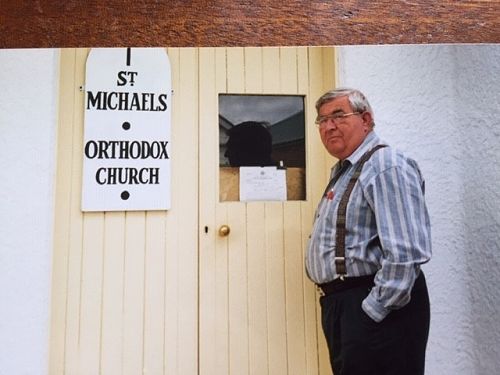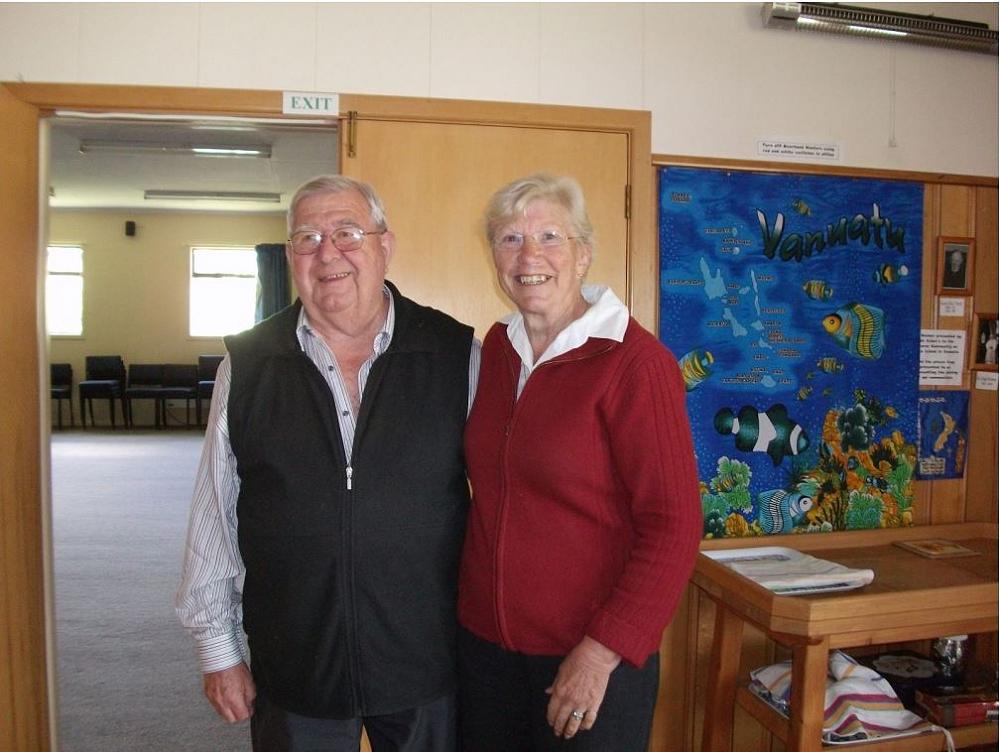
Remembering Rev'd Neil Hansen, 1929-2020
Many of you will remember the Rev'd Neil Hansen who died in May this year. Neil held various appointments in Bluff-Stewart Island, Invercargill, Dunstan and Dunedin (Holy Cross and Peninsula), as well as being involved in the Standing Committee (Diocesan Council) and Finance Committee. He is survived by his wife Cheryl who has sent us the following tribute from his funeral. May Neil rest in peace and rise in Glory...
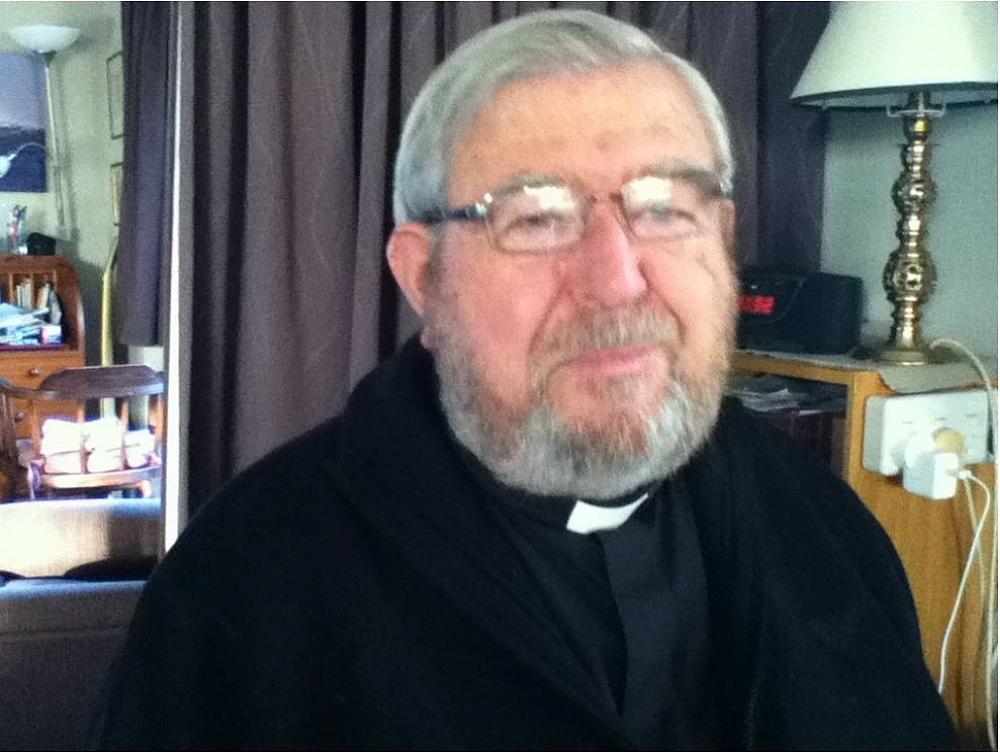
Neil Bertram Hansen Tribute, 20 May 2020
When we have talked about funerals, Neil has been of the opinion that the purpose of a funeral is not to celebrate a person’s life which is what it has become, but rather to commend the person to the care of God. He also didn’t want the focus to be on him but he would be happy to have an overview of where he had been on his earthly journey. So off we go…
Neil was born to Doris and Bert Hansen in Hastings in 1929 and he had a big sister, Nola who was fifteen months older. Following the 1931 earthquake however, Neil’s father lost his business and eventually they moved to Wellington where his Mum established a shop in Newtown - now part of the Hospital carpark. Neil attended Newtown school as had his father and attended Rongotai College. He was offered a scholarship to Selwyn College, a hall of residence attached to Otago University where with ordination his goal, he completed his B.A. and a Certificate of Proficiency in Theology.
Faced with two years a deacon, (he was too young to be priested), and what he called a fate worse than death, he decided to go to England and set sail on the ship Port Dunedin as a steward. However, before the ship left , many of the crew had jumped ship as they saw the chance of a better life here, and Neil was promoted to Captain’s Steward quite rapidly. The Port Dunedin was mainly carrying frozen lamb with about 6 passengers and broke down no fewer than 18 times on the voyage.
Landing in Hull Neil had arranged a teaching position at Stagenhoe Park a prep school for boys, on an adjoining property to the royal residence and occasionally the then Queen Mother (wife of King George VI) would walk down the lane and spend time chatting to the students.
Neil then spent time at St Stephen’s House, Oxford where he studied things liturgical, and attended lectures by C.S. Lewis. He was ordained in Exeter Cathedral and worked in the parish of St Peter’s, Plymouth. It was here Neil became involved with the Seafarers Mission, visiting lighthouses in the chanel, and even held the title of vicar of Florence for one month!
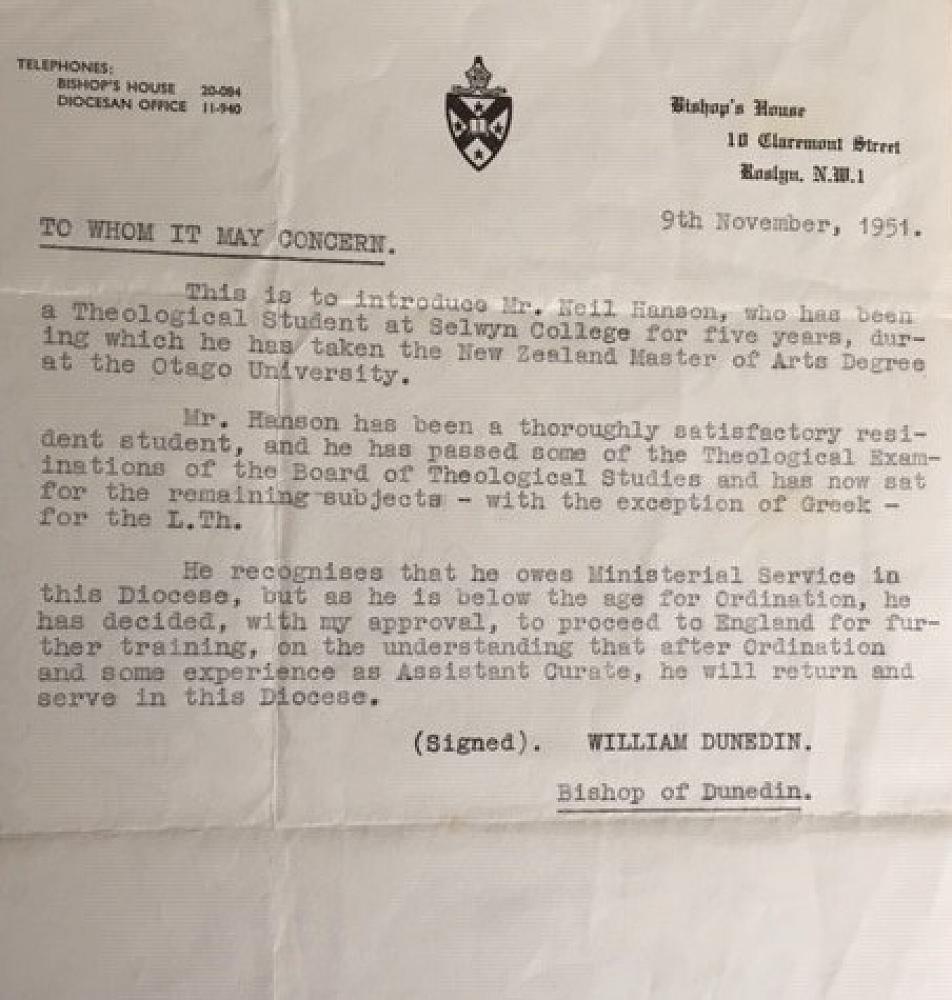
Diocese of Dunedin
Returning to NZ following his father’s stroke and still being remembered in the Dunedin diocese, he was offered the parish of Bluff/Stewart Island. Neil's father's stroke had left him in a wheelchair, so once he was in Bluff his parents moved there and lived with him up until our time of marriage... so, his Mum took on the role of vicar's wife (kind of!). His mother assited with a whole range of things, including making vestments for the Omakau Church at a later charge.
Neil's comment around being in the most southern part of the Anglican church was - you can only go north from here! He remembers well his first service of morning prayer in Bluff when he rang the bell with enthusiasm then sat and waited a bit - to hear the sound of pounding feet and into the church came a number of men - he was impressed but that didn’t last long as nobody had told him the church bell was also the alarm for the voluntary fire brigade! Bluff in those days was a booming port and the Tiwi Smelter was being built.
After two years Neil was invited to become the vicar of the Dunstan, the area of which covered some four and a half thousand square miles - Clyde, Alexandra, Cromwell, Wanaka and Omakau. While here he would occasionally be called on to go to Haast to find an errant husband so he would drive to the Haast River where a tractor would come and ferry him across to carry out his mission. Neil realised the need to minimise the travel involved in this parish and saw it divided into two - the new Upper Clutha with Cromwell as its center, and Alexandra the other center.
The offer to return to a city parish after ten years was accepted and Neil became vicar of Holy Cross church in St Kilda, Dunedin. It was here that he met his future wife and where they started a family. While he was at Holy Cross, he was given permission to take services at the St Michael's Orthodox Church in Fingal St. Sadly son Christian died from a cot death and Neil’s father died on the day of the baby’s funeral. The Bishop considered it could be helpful if we had a move.
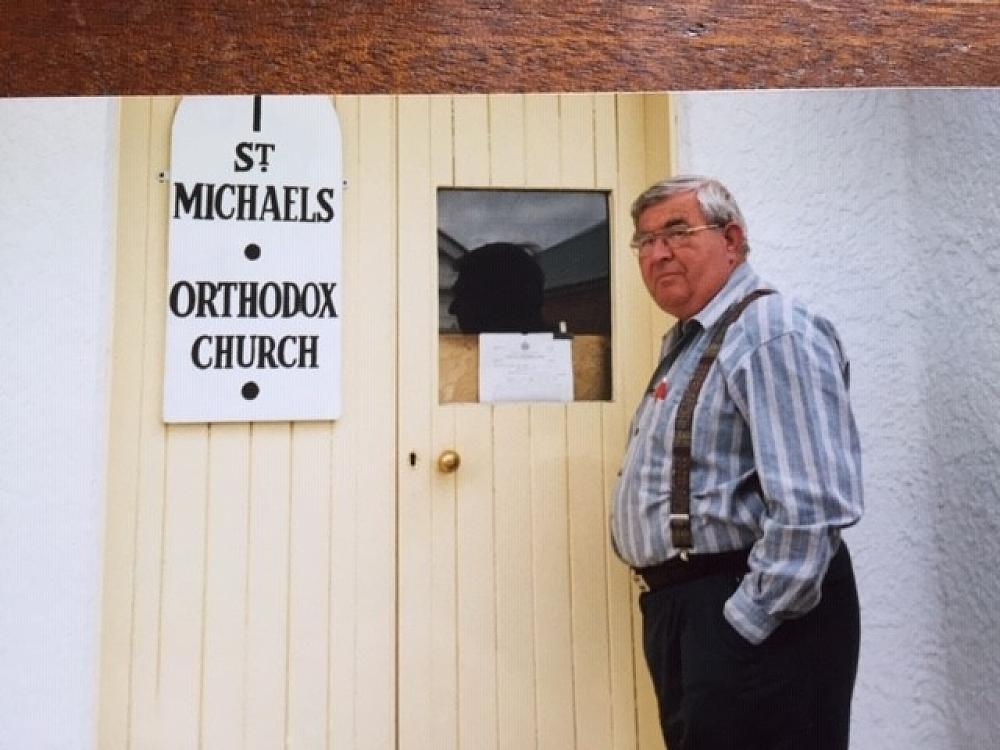
The parish of Holy Trinity, North Invercargill became our next home and it was a young and vibrant place and where both Rebecca and Justus came into the family. Neil’s influence in diocesan financial matters was required back in Dunedin and so the parish of St Michael’s, Andersons Bay became our home. Neil was heavily involved in the Finance Committee, Standing Committee and on General Synod. This parish covered the Otago Peninsula with multiple churches but assisted by two retired clergy. The suggestion of a columbarium became a reality and it has many faithful parishioners buried there.
Neil accepted the invitation to become the Archdeacon of Southland and we moved back to Invercargill to take up residence at St John’s. Again this parish had multiple centres and an enthusiastic team of curates to assist with services in the various churches, the hospital and rest homes. The borstal was also part of the ministry at this time.
Diocese of Wellington
A final move was made to fulfil Neil’s initial comment - I can only move north from here - to become vicar of St Barnabas, Khandallah in Wellington and to a single church to minister to. It didn’t take long for Neil to introduce a team of young servers, a couple of youth groups and eventually introduce a third Sunday service. With a large amount of land surrounding the church Neil saw the potential for a housing development which could financially support the parish and the decision was made to move the original church to become the first Anglican church in Whitby to free up the land. So the wheels were put in motion to get it going. Sadly the share market crashed in 1984 and the development could have followed had it not been for some very generous parishioners who stepped in and underwrote the expenses incurred. Eventually twelve houses and a new vicarage were built. It was in this time Neil reconnected with the Missions to Seafarers and spent several years on that committee.
Neil decided to retire in 1993 and we purchased our home in the parish of Tawa Linden. This was a vibrant parish and we found our place within the congregation of St Peter’s, Linden. During this time Neil was involved with the Wellington City Mission taking responsibility for their care home in Titahi Bay which he did for many years.
During Neil’s priestly ministry, most parishes supported large Sunday Schools and choirs. They also often had an annual parish concert of some sort and one particular one which comes to mind was in Andersons Bay. The TV star of the day was one Fred Dagg which I’m sure many of you will remember. Well onto the stage came this guy - Fred Dagg - dressed in his usual black singlet, shorts, gumboots and large floppy hat. There was a gasp as the parishioners tried to ascertain who the person was. Having sung a typical Fred Dagg song "If it weren’t for your gumboots where would you be" - the person was revealed as none other than the vicar, Neil Hansen. He was certainly the highlight of the concert.
The decision was made to sell our Tawa home and we moved to the Wairarapa. Having attended services at both St Matthew’s and Epiphany, Epiphany won the vote to become the parish home as the door of its church was always open. And so began another chapter in Neil’s ministry. He became largely responsible for the Wednesday service but also officiated at Sunday services.
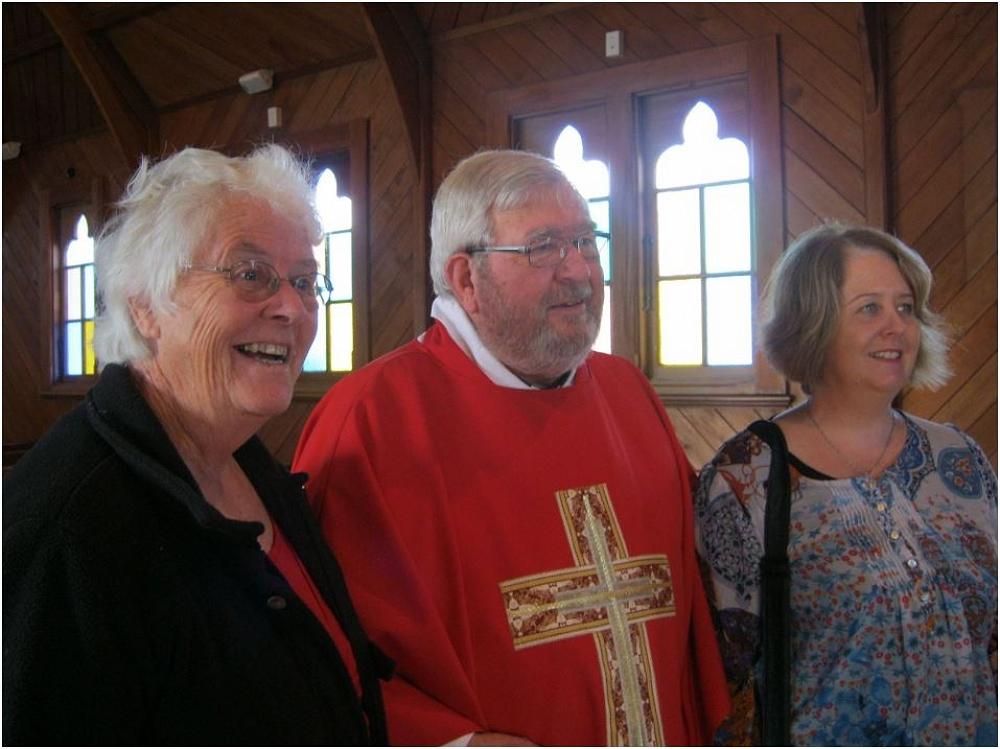
Neil has always a heart for the people in his care and for the importance of the church and what it stands for in society. Neil has lived his Christian life to the full with enthusiasm and determination, with compassion and conviction. He was always up for a jolly good theological or political debate and nearly always won.
Now Neil’s earthly ministry has been completed, he is free from the constraints of this world and at last can experience God’s peace which passes all understanding.
Gallery
